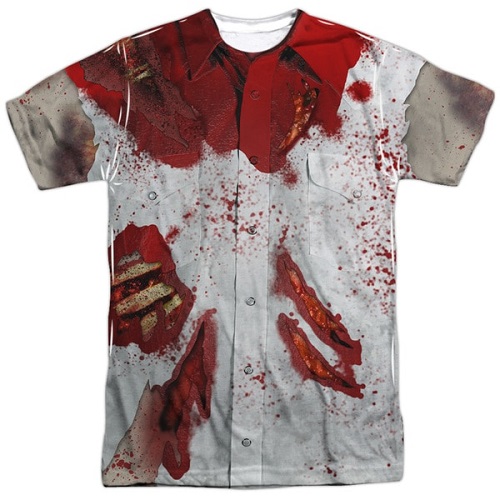FWP:
SETS == GROTESQUERIE
CHAK-E GAREBAN: {17,9}
CLOTHING/NAKEDNESS: {3,5}
Bekhud Mohani likes nothing better than to take on Nazm, so it's no surprise to see him join battle here. But it's unusual to see him seconded by Bekhud Dihlavi, who ordinarily borrows heavily from Nazm. I can hardly recall that Bekhud Dihlavi has done anything like this since all the way back in {1,1}. The discussion illustrates the fine line in a verse between the kind of bland, un-grounded vagueness criticized by Nazm (a substantial flow of blood, sufficient to saturate a whole garment, requires some explanation), and the kind of desirably subtle multivalence envisioned by the two Bekhuds (the reader is left to imagine, enjoyably, which of the many possible causes might have produced the sticky blood).
This is also a verse of what I call 'grotesquerie', one in which the somewhat revolting physicality detracts from the literary effect. The vision of the lover's whole body coated in blood, such that his robe is literally plastered to his skin with sticky blood, is, to me at least, distracting and off-putting. That verb chipaknā is so strong, so plain, so vivid! And its being in the present progressive tense makes the whole thing seem to happen before our eyes.
The inshāʾiyah
second line asks a question that has two obvious answers. On the direct physical
level, perhaps the lover's clothing indeed doesn't need any stitching any
more, because it adheres so well to his body by means of the sticky blood.
(Though in that case it will probably stiffen and cease to adhere once the
blood has thoroughly dried-- though, again, if the blood is constantly flowing,
perhaps it will never dry.) And on the more abstract level, if the lover is
now so far gone that his whole body is bathed in blood, he'll never need to
worry about his garments any more, since he'll soon be wrapped only in a shroud--
so indeed, why should he bother about his torn collar?

Nazm:
In this verse one error is that he did not give any reason for the blood flowing out. That boys struck him with stones and made the blood flow; or that he himself has bashed his head against a wall, or wept tears of blood, or kept beating his breast till he wounded it, or when tearing his collar scratched himself with his fingernails-- all these are possible. But from not providing a reason, an unenjoyableness has been created in the verse. (200-01)
== Nazm page 200; Nazm page 201